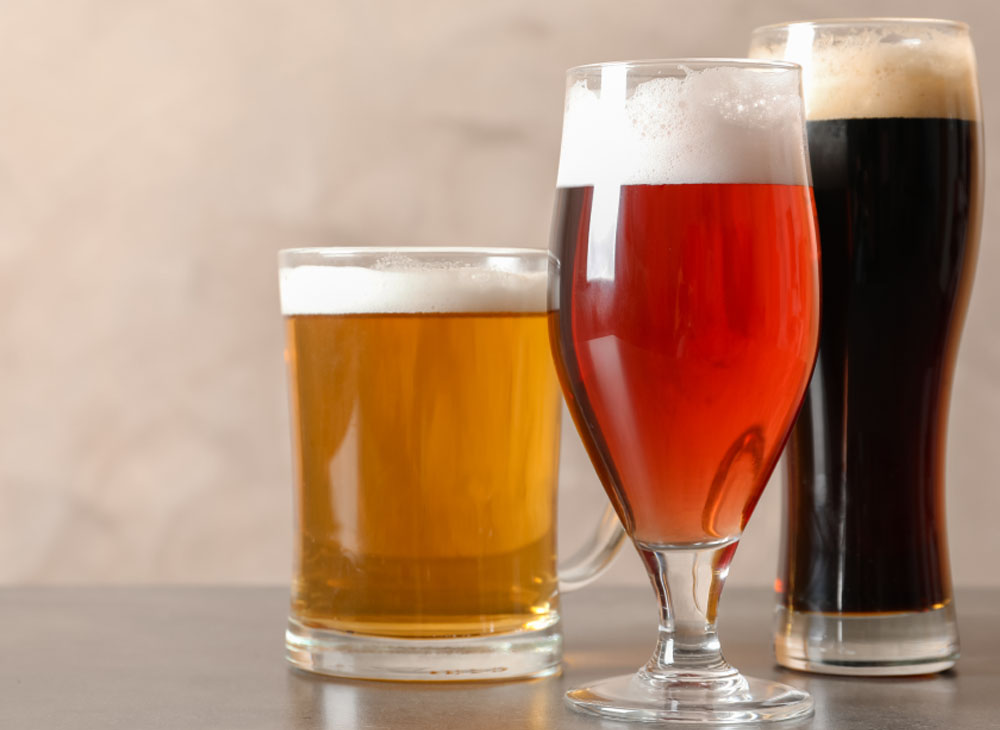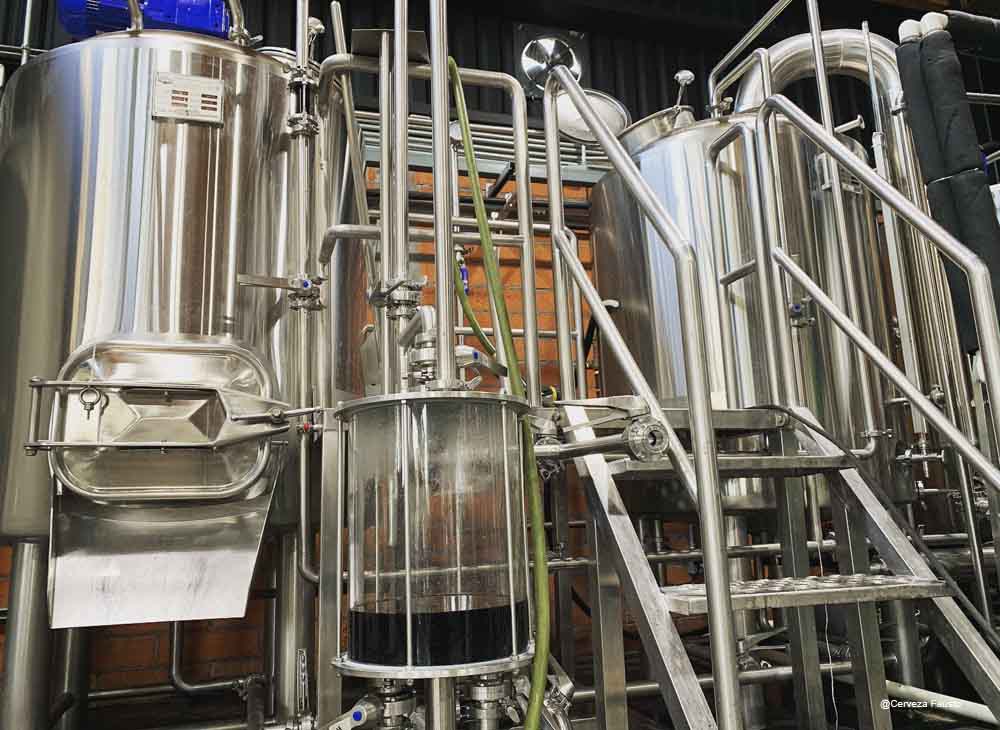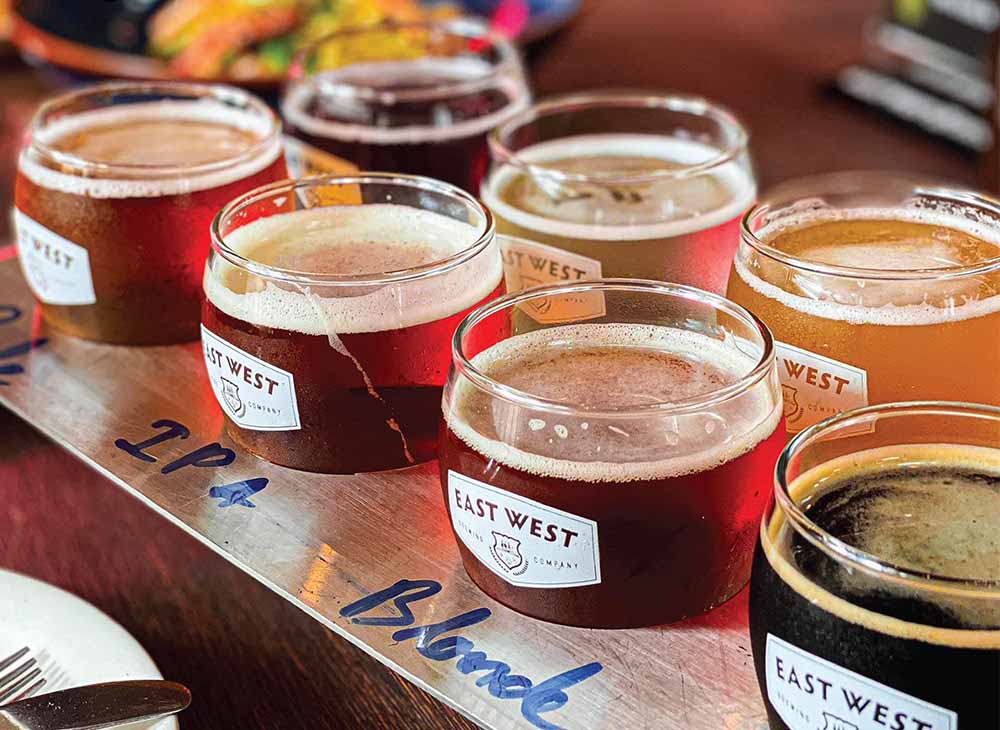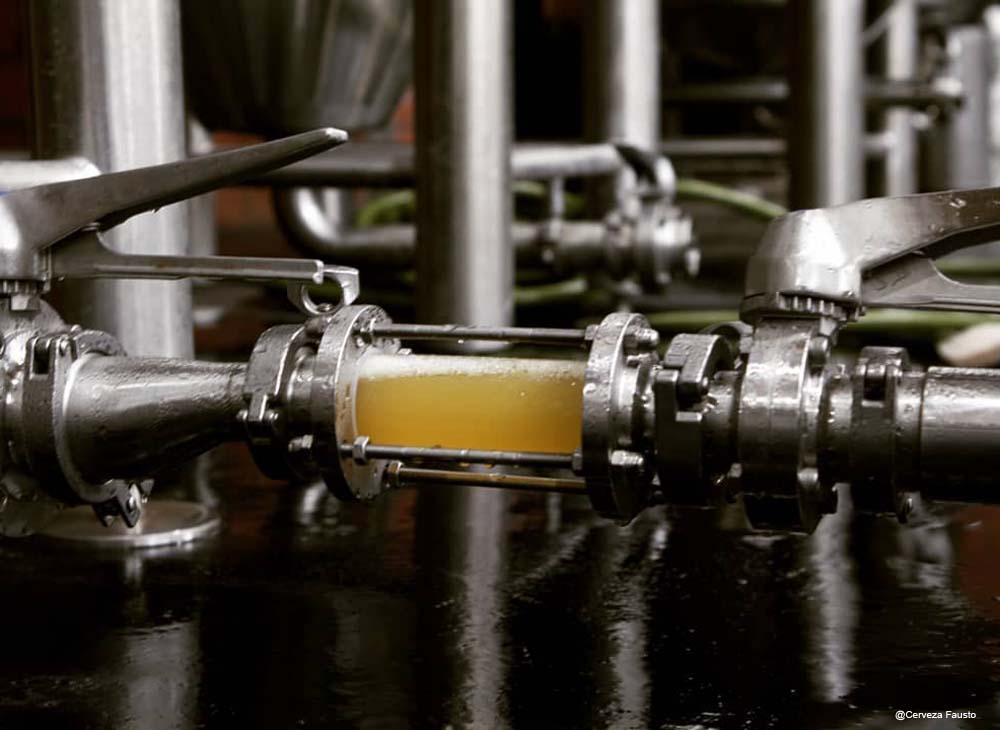How to Tast Your Beer Brewed by Your Brewing Equipment
- Sep 16, 2021
- 76
- tiantai
We gathered for the first time since the COVID-19 outbreak at one of our beer brewing equipment club member’s newly opened brewery taproom. As we naturally broke off into small sub-groups, focusing on different aspects of beer and brewing equipment, I chatted with one fellow club member about how he feels like he has really started to nail down his IPA recipe and process. But because he hasn’t had anyone over to taste it he felt like there was no merit to this claim. He followed that by saying, “I just don’t know how to taste my beer critically.” So this piece is dedicated to him because in order to improve our craft, we all should be able to judge our beer’s merits and faults.
Gaining Experience
First of all, the more you taste various beers, the better you can hone your likes and dislikes. Some great ways to really broaden your palate include: Visiting local breweries for samplers, buying mixed-pack beers, attending beer festivals, and/or regularly attending homebrew club meetings for tasting events. Don’t get stuck buying the same style by the same brewery! Did you really like the malt profile for that Munich helles? You should inquire what base malt was used. The hop character of a beer not agree with you? You could possibly find out that hop variety is one you should avoid or find a blending partner that could lift it.
Get critical of other beers first. Don’t be afraid to offer a critical assessment of the beer. But make sure it is constructive criticism. For example, a beer you taste is overly sweet and cloying. You could find out what yeast strain they used and the pitch rate, if they used yeast nutrients, was lactose or maltodextrin included, was the final gravity where they intended it? Trying to find the merits and faults in other’s beers can really help guide your decisions in your own brewery.

Finding Faults
I find that pinpointing faults in a beer is best done in groups. Unfortunately sometimes groups can go down the wrong wormhole too as the power of suggestion is a real thing in the groupthink mentality. So be sure that you don’t necessarily listen to other opinions as gospel. If someone says they’re finding oxidative notes, but you’re not sensing any . . . go with your gut first. Finding qualified beer tasters to compare notes with can go a long way in training your palate.
A short list of common faults includes acetaldehyde (green apple), astringency (drying sensation on tongue), diacetyl (movie-theater butter), dimethyl sulfide/DMS (cooked cabbage/corn), metallic (just as it would seem, sensation on the tongue), oxidation (muted hop and malt character in light examples, wet cardboard in extreme), phenols (complicated, not always a fault: https://byo.com/article/the-phenolic-phamily/), and vinegary (just as it would seem). Yeast-related faults are typically noted with the presence of acetaldehyde and diacetyl or can appear as under-attenuated beer (sweet and cloying). Poor sanitation can come in the form of chlorophenols (Band-Aid/medicinal smelling and tasting phenols), unintended phenolics, or vinegary notes. Process-related faults are typically noted as astringency (or hop burn), oxidation, DMS, or metallic and chlorophenols (both in the case of not properly treating source water).
A great way to train your palate to sense some of these faults is through a beer faults sensory training course. Some homebrew clubs will organize such events and there are kits available online. But they are not cheap and best done in a group setting. Inventive brewers have come up with their own DIY faults sensory training.
Tasting Your Brew
Once you gain a level of comfort in expressing your likes and dislikes in certain beers you can simultaneously start picking up on the faults as well. This means you’re well on your way to being honest and critical of your own brews. Just because your yeast didn’t finish fermentation as low as you expected, that doesn’t mean the beer is under-attenuated and will be sweet and cloying. A small misstep on brew day could have meant that was as far as the yeast could go. The beer’s smell and taste will be your guide.
For tastings, don’t serve samples too cold and give the glass a good swirl before you get your nose in there. Take a moment and breathe it in . . . don’t rush this part. Take notes, then when you take a sip, give it a good swish around your mouth, almost like mouthwash. I personally find that sometimes a well-timed burp can bring some aromatic characteristics back to my nasal glands that were missed in first passing. You may find that a beer that finished at 1.020 instead of the expected 1.016 like it did last time, is indistinguishable in character. But still, try to troubleshoot why it finished four points higher.
Keeping a brewing journal and each beer’s tasting notes will help you gain the experience and knowledge needed to improve. Don’t be shy in asking for other’s opinions. Just because some friends and/or loved-one’s say, “Mmm . . . that’s good” doesn’t actually make it a good beer. I’ve made beers that were just not good, but friends would still say they liked them. I love tinkering with my process and recipes, something that keeps the hobby fun to me . . . some are winners, some are not . . . but each year I find the tide overall continues to lift.
If you are planning to build your own brewery. TIANTAI Brewery equipment could help you answer your questions and supply brewery equipment. We supply 2-150HL complete beer brewing equipment including malt milling equipment, brew houses equipment, beer fermenters /fermentation tank, brite beer tanks, beer bottling machine,beer canning machine, beer kegging machine, hopping machine, yeast propagation equipment. We also supply all auxiliary brewery systems like steam heating pipe and valves, water treatment, filter, air compressor etc. Everything in brewery are all in our list.
If you are interested in starting a brewery, please feel free to contact with TIANTAI.
Derrick
Sales Manager
[email protected]
Tiantai Beer Equipment
Gaining Experience
First of all, the more you taste various beers, the better you can hone your likes and dislikes. Some great ways to really broaden your palate include: Visiting local breweries for samplers, buying mixed-pack beers, attending beer festivals, and/or regularly attending homebrew club meetings for tasting events. Don’t get stuck buying the same style by the same brewery! Did you really like the malt profile for that Munich helles? You should inquire what base malt was used. The hop character of a beer not agree with you? You could possibly find out that hop variety is one you should avoid or find a blending partner that could lift it.
Get critical of other beers first. Don’t be afraid to offer a critical assessment of the beer. But make sure it is constructive criticism. For example, a beer you taste is overly sweet and cloying. You could find out what yeast strain they used and the pitch rate, if they used yeast nutrients, was lactose or maltodextrin included, was the final gravity where they intended it? Trying to find the merits and faults in other’s beers can really help guide your decisions in your own brewery.

Finding Faults
I find that pinpointing faults in a beer is best done in groups. Unfortunately sometimes groups can go down the wrong wormhole too as the power of suggestion is a real thing in the groupthink mentality. So be sure that you don’t necessarily listen to other opinions as gospel. If someone says they’re finding oxidative notes, but you’re not sensing any . . . go with your gut first. Finding qualified beer tasters to compare notes with can go a long way in training your palate.
A short list of common faults includes acetaldehyde (green apple), astringency (drying sensation on tongue), diacetyl (movie-theater butter), dimethyl sulfide/DMS (cooked cabbage/corn), metallic (just as it would seem, sensation on the tongue), oxidation (muted hop and malt character in light examples, wet cardboard in extreme), phenols (complicated, not always a fault: https://byo.com/article/the-phenolic-phamily/), and vinegary (just as it would seem). Yeast-related faults are typically noted with the presence of acetaldehyde and diacetyl or can appear as under-attenuated beer (sweet and cloying). Poor sanitation can come in the form of chlorophenols (Band-Aid/medicinal smelling and tasting phenols), unintended phenolics, or vinegary notes. Process-related faults are typically noted as astringency (or hop burn), oxidation, DMS, or metallic and chlorophenols (both in the case of not properly treating source water).
A great way to train your palate to sense some of these faults is through a beer faults sensory training course. Some homebrew clubs will organize such events and there are kits available online. But they are not cheap and best done in a group setting. Inventive brewers have come up with their own DIY faults sensory training.
Tasting Your Brew
Once you gain a level of comfort in expressing your likes and dislikes in certain beers you can simultaneously start picking up on the faults as well. This means you’re well on your way to being honest and critical of your own brews. Just because your yeast didn’t finish fermentation as low as you expected, that doesn’t mean the beer is under-attenuated and will be sweet and cloying. A small misstep on brew day could have meant that was as far as the yeast could go. The beer’s smell and taste will be your guide.
For tastings, don’t serve samples too cold and give the glass a good swirl before you get your nose in there. Take a moment and breathe it in . . . don’t rush this part. Take notes, then when you take a sip, give it a good swish around your mouth, almost like mouthwash. I personally find that sometimes a well-timed burp can bring some aromatic characteristics back to my nasal glands that were missed in first passing. You may find that a beer that finished at 1.020 instead of the expected 1.016 like it did last time, is indistinguishable in character. But still, try to troubleshoot why it finished four points higher.
Keeping a brewing journal and each beer’s tasting notes will help you gain the experience and knowledge needed to improve. Don’t be shy in asking for other’s opinions. Just because some friends and/or loved-one’s say, “Mmm . . . that’s good” doesn’t actually make it a good beer. I’ve made beers that were just not good, but friends would still say they liked them. I love tinkering with my process and recipes, something that keeps the hobby fun to me . . . some are winners, some are not . . . but each year I find the tide overall continues to lift.
If you are planning to build your own brewery. TIANTAI Brewery equipment could help you answer your questions and supply brewery equipment. We supply 2-150HL complete beer brewing equipment including malt milling equipment, brew houses equipment, beer fermenters /fermentation tank, brite beer tanks, beer bottling machine,beer canning machine, beer kegging machine, hopping machine, yeast propagation equipment. We also supply all auxiliary brewery systems like steam heating pipe and valves, water treatment, filter, air compressor etc. Everything in brewery are all in our list.
If you are interested in starting a brewery, please feel free to contact with TIANTAI.
Derrick
Sales Manager
[email protected]
Tiantai Beer Equipment


.jpg)

